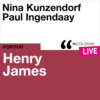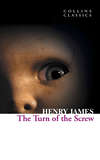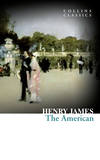Buch lesen: «The Letters of Henry James. Vol. II», Seite 5
To Mrs. Dew-Smith
This refers to the revision of Roderick Hudson, which was to head the "New York" edition of his novels, now definitely announced.
Lamb House, Rye.November 12th, 1906.
Dear Mrs. Dew-Smith,
Very kind your note about the apples and about poor R.H.! Burgess Noakes is to climb the hill in a day or two, basket on arm, and bring me back the rosy crop, which I am finding quite the staff of life.
As for the tidied-up book, I am greatly touched by your generous interest in the question of the tidying-up, and yet really think your view of that process erratic and—quite of course—my own view well inspired! But we are really both right, for to attempt to retouch the substance of the thing would be as foolish as it would be (in a done and impenetrable structure) impracticable. What I have tried for is a mere revision of surface and expression, as the thing is positively in many places quite vilely written! The essence of the matter is wholly unaltered—save for seeming in places, I think, a little better brought out. At any rate the deed is already perpetrated—and I do continue to wish perversely and sorely that you had waited—to re-peruse—for this prettier and cleaner form. However, I ought only to be devoutly grateful—as in fact I am—for your power to re-peruse at all, and will come and thank you afresh as soon as you return to the fold; as to which I beg you to make an early signal to yours most truly,
HENRY JAMES.
To Mrs. Wharton
The desired visit to George Sand's Nohant was brought off in the following year, when H. J. motored there with Mrs. Wharton. "Rue Barbet de Jouy" is the address in Paris of M. Paul Bourget.
Reform Club, Pall Mall, S.W.November 17th, 1906.
Dear Mrs. Wharton,
I had from you a shortish time since a very beautiful and interesting letter—into the ink to thank you for which my pen has been perpetually about to dip, and now comes the further thrill of your "quaint" little picture card with its news of the Paris winter and the romantic rue de Varenne; on which the pen straightway plunges into the fluid. This is really charming and uplifting news, and I applaud the free sweep of your "line of life" with all my heart. We shall be almost neighbours, and I will most assuredly hie me as promptly as possible across the scant interspace of the Channel, the Pas-de-Calais &c: where the very first question on which I shall beset you will be your adventure and impression of Nohant—as to which I burn and yearn for fond particulars. Perhaps if you have the proper Vehicle of Passion—as I make no doubt—you will be going there once more—in which case do take me! And such a suave and convenient crossing as I meanwhile wish you—and such a provision of philosophy laid up, in advance, for use in, and about, rue Barbet de Jouy! You will have finished your new fiction, I "presume"—if it isn't presumptuous—before embarking? and I do so for the right of the desire to congratulate, in that case, and envy and sympathise—being in all sorts of embarras now, myself, over the finish of many things. I pant for the start of that work and languish to take it up. I think I have had no chance to tell you how much I admired your single story in the Aug. Scribner—beautifully done, I thought, and full of felicities and achieved values and pictures. All the same, with the rue de Varenne &c., don't go in too much for the French or the "Franco-American" subject—the real field of your extension is here—it has far more fusability with our native and primary material; between which and French elements there is, I hold, a disparity as complete as between a life led in trees, say, and a life led in—sea-depths, or in other words between that of climbers and swimmers—or (crudely) that of monkeys and fish. Is the Play Thing meanwhile climbing or swimming?—I take much interest in its fate. But you will tell me of these things—in February! It will be then I shall scramble over. I go home an hour or two hence (to stay as still as possible) after a night—only—spent in town. The perpetual summonses and solicitations of London (some of which have to be met) are at times a maddening worry—or almost. I am wondering if you are not feeling just now perhaps a good deal, at Lenox, in the apparently delightful old 1840 way—a good snowstorm ending, and the Westinghouse colouring, as I suppose, a good deal blurred. But how I want to have it all—the gossip of the countryside—from you! Some of it has come to me as rather dreadful … and that is what some of the lone houses in the deep valleys we motored through used to make me think of!…
I am meanwhile yours very constantly,HENRY JAMES.
To W. E. Norris
16 Lewes Crescent,Brighton.December 23rd, 1906.
My dear Norris,
I think it was from here I wrote you last Christmas; by which I devoutly hope I don't give you a handle for saying: "And not from anywhere since then." But I am but too aware that it has been at the best a hideous record of silence and apparent gloom, and also fully feel that after such base laideurs of behaviour explanations, attenuations, protestations, are as the mere rustle of the wind and had really better be left unuttered. That only adds to the dark burden of one's consciousness when one does write; one crawls into the dear outraged presence with all one's imperfections on one's head. So I'll indulge, at any rate, in no specific plea—but only in that general one of the fact that the letter-writing faculty within me has become extinct through increasing age, infirmity, embarrassment (the spelling faculty, even, you see, almost extinct,) and general demoralization and desolation. Twenty reproachful spectres rise up before me—out of whom your fine sad face is only the most awful. All I can say for myself (and you) is that among these feeble reparations that I am trying to make in the way of "hardy annuals"—hardy in the sense, I fear, of a sort of shameful brazenness—this "Christmas letter" to you takes absolute precedence. I wrote indeed to Rhoda Broughton a couple of days since, from town, but that was a melancholy matter on the occasion of my having gone up to poor dear Hamilton Aïdé's memorial service (where I didn't see her, though she may have been present, and of which I thought she would care for some little account. It was a very beautiful and touching musical service. But I haven't seen her for a long time, alas!—amid these years of more and more interspaced—and finished—occasions.) Of course I am hoping that this will lie on your table on Xmas morning—in all sorts of charming company, and not before and not after. But it's difficult to time communications at this upheaved season, especially from another (non-London) province, and I trust to the happy hazard, though still a little ruffled by a sense of the break-down of things (the "public services") that compelled me yesterday, coming down here from Victoria, to be shoved into (as the only place in the train) the small connecting-space between two Pullmans, where I stuck, all the way, in a tight bunch of five or six other men and three portmanteaux and boxes: quite the sort of treatment (one's nose half in the w.c. included) that the English traveller writes from Italy infuriated letters to the Times about. I figure you at all events exempt from any indignity of movement (and the conditions of movement nowadays almost all include indignity) and still sitting up on your Torquay slope as on a mild Olympus and with this strife of circulating humans far below you. But when I reflect that I don't know, for certain, any of your actualities I reflect with a crimson countenance on the months that have elapsed. I have before me as I write a beautiful letter from you, of the date of which nothing would induce me to remind you—but that is not quite your contemporary history.... Putting your own news at its quietest, however, my own runs it close—for save for this small episode (a stay with some old and intensely tranquil American friends established here for the ending of their days,) and putting aside a few days at a time in London, which I find periodically inevitable, and even quite like, I haven't stirred for ages from my own house, the suitability of which to my modest scheme of existence grows fortunately more and more marked. I spent last summer there—the most beautiful of one's life I think—without the briefest of breaks—and that gregarious time is the one at which I like least to circulate. The little place, alas, becomes itself—like all places save Torquay, I judge—more and more gregarious: and there were a good many days when even my own small premises bristled too much with the invader. But there is a great virtue in sitting tight—you sit out many things; even bores are, comparatively speaking, loose; and I had a blest sort of garden (by which I'm far from meaning gardening) summer. What it must have been beside your sapphire sea! I return, at any rate, in a few days, to sit tight again, till early in February, when there are reasons for my probably going for five or six weeks to Paris; and even possibly—or impossibly—to Rome; one of the principal of these being that the prospect fills me with a blackness of horror that I find really alarming as a sign of moral paralysis and abjection; so that I ought to try to fly in the face of it. But I shall fly at the best, I fear, very low!…
I needn't tell you how much I hope and pray that this may find you, as they say, in health. There's an icy blast here to-day—yet I take for granted that if it weren't Sunday you would be doing something very prodigious and muscular in the teeth of it. The prize (of long activity and sweet survival) is with those whose hardness is greater than other hardnesses. And yours is greater than that of the sea-wave and all the rest of opposing nature—though I make this imputation only on behalf of your sporting resources. I appeal to the softest corner of the softest part of the rest of you to make before too long some magnanimous sign to yours very constantly,
HENRY JAMES.
To Thomas Sergeant Perry
Mr. Perry, whose recollections of H. J. and his brothers at Newport have been read on an early page of these volumes, was at this time living in Paris.
Brighton.Boxing Day, 1906.
My dear Thomas,
I have remained silent—in the matter of your last good letter—under a great stress of correspondence de fin d'année; which you on your side must be having also to reckon with. The end is not yet, but I want to greet you without a more indecent delay and to impress you with a sense of my cordial and seasonable sentiments; such as you will communicate, please, unreservedly to les vôtres around the Xmastide hearth. I am spending the so equivocal period with some very quiet old friends at this place, and I write this in presence of a shining silvery shimmery sea, on one of the prettiest possible south-coast mornings. It's like the old Brighton that you may read about (Miss Honeyman's) in the early chapters of the "Newcomes." But you are of course bathed, in Paris, in a much more sumptuous splendour. But what a triste Nouvel An for the poor foolish, or misguided church (not) of France! A little more and "we Protestants"—you and I—will have to subscribe for it. Your "Censeur" was very welcome, and the portrait of Mme Barboux of the last heart-breaking expertness. But somehow these things are all pen, as if all life had run to it—and one wonders what becomes of the rest (of consciousness—save the literary). Yet the literary breaks down with them too on occasion—as in the apparent failure to discover that the value of Shakespeare is that of the most splendid poetry, as expression, that ever was on earth, and that they are reckoning for him apparently as by the langue of Sardou. How funnily solemn, or solemnly funny, the little Goncourt Academy!—yet when they have made up their mind I shall like to hear on whom and what, and you must tell me, and I will get the book.
Bill, I am afraid meanwhile, will have been absent from your Yuletide revels: if he has gone to Geneva (of the bise) as he hinted to me that he might and as I don't quite envy him. But à cet âge—!… I think I really shall see you dans le courant de février. I presently go home to work toward that end, ferme. I send again a thousand friendships to Mrs. Thomas and the Miss Thomases and am always yours and theirs,
HENRY JAMES.
To Gaillard T. Lapsley
Mr. Lapsley, now settled in England, had become the neighbour (at Cambridge) of Mr. A. C. Benson and the present editor—the "Islander" and the "Librarian" of the following letter.
16 Lewes Crescent,Brighton.December 27th, 1906.
My dear, dear Gaillard,
I am touched almost to anguish by your beautiful and generous letter, and lose not an instant in thanking you for it with the last effusion. It is no vain figure of speech, but a solemn, an all-solemn verity, that even were I not thus blessedly hearing from you at this felicitous time, I should have been, within the next two or three days, writing to you, and I had formed and registered the sacred purpose and vow, to tell you that really these long lapses of sight and sound of you don't do for me at all and that I groan over the strange fatality of this last so persistent failure—during long months, years!—of my power to become in any way possessed of you. (My own fault, oh yes—a thousand times; for which I bow my forehead in the dust.) My intense respect for your so noble occupations and your so distinguished "personality" have had a good deal to say to the matter, moreover; there is a vulgar untimeliness of approach to the highly-devoted and the deeply-cloistered, of which I have always hated to appear capable! It is just what I may, however, even now be guilty of if I put you the crude question of whether there isn't perhaps any moment of this January when you could come to me for a couple of deeply amicable days?… I don't quite know what your holidays are, nor what heroic immersions in scholastic abysses you may not cultivate the depressing ideal of carrying on even while they last, but I seem to reflect that you never will be able to come to me free and easy (there's a sweet prophecy for you!) and that my only course therefore is to tug at you, blindfold, through, and in spite of, your tangle of silver coils. I know, no one better, that it's hateful to pay visits, and especially winter ones, from (far) and to (far) 'tother side of town; but to brood on such invidious truths is simply to plot for your escaping me altogether; and I reflect further that you are, with your great train-services, decently suburban to London, and that the dear old 4.28 from Charing Cross to Rye brings you down in exactly two not discomfortable hours. Also my poor little house is now really warm—even hot; I put in very effective hot-water pipes only this autumn. Ponder these things, my dear Gaillard—and the further fact that I intensely yearn for you!—struggle with them, master them, subjugate them; then pick out your pair of days (two full and clear ones with me, I mean, exclusive of journeys) and let me know that you arrive. I hate to worry you about it, and shall understand anything and everything; but come if you humanly can.
When I think of the charm of possibly taking up with you by the Lamb House fire the various interesting impressions, allusions, American references and memories etc., with which your letter is so richly bedight, I kind of feel that you must come, to tell me more of everything.... So, just yet, I shall reserve these thrills; for I feel that I shall and must, by hook or by crook, see you. I expect to go abroad about Feb. 5th for a few weeks—but that won't prevent. I rejoice to hear your news, however sketchy, of the Islander of Ely and the Librarian of Magdalene. Commend me as handsomely as possible to the lone Islander—how gladly would I at the very perfect right moment be his man Friday, or Saturday, or, even better, Sunday!—and tell Percy Lubbock, with my love, that I missed him acutely the other week at Windsor (which he will understand and perhaps even believe.) What disconcerted me in your letter was your mention of your having, while in America, been definitely ill—a proceeding of which I wholly disapprove. I desire to talk to you about that, too, even though I meanwhile discharge upon you, my dear Gaillard, the abounding sympathy of yours always and ever,
HENRY JAMES
To Bruce Porter
Mr. Bruce Porter had written from San Francisco, describing the earthquake of the preceding spring.
Lamb House, Rye.February 19th, 1907.
My dear Bruce Porter,
I have had from you a very noble and beautiful letter, which has given me exceeding great joy, and which I have only not sooner thanked you for—well, by reason of many interruptions and preoccupations—mainly those resulting from my being in London (the hourly importunate) when it came to me; at which seasons, and during which sojourns, I always put off as much correspondence as possible till I get back to this comparative peace. (I returned here, but three days since.) How shall I tell you, at any rate, today, how your letter touches and even, as it were, relieves me? I had felt like such a Backward Brute in writing mine, but now in communication with your treasures of indulgence and generosity, I feel only your admirable virtue and the high price I set upon your friendship. So I thank you, all tenderly, and assure you that you have poured balm on much of my anxiety, not to say on my shame. Your account of those unimaginable weeks of your great crisis are of a thrilling and uplifting interest—and yet everything remains unimaginable to me—as to the sense of your whole actual situation; and the lurid newspapers, on all this, do nothing but darken and distract my vision. I hope you are living in less of a pandemonium than they, basest afflictions of our afflicted age, give you out to be—but verily the bridge of comprehension is strained and shaky and impassable between this little old-world russet shore and your vertiginous cosmic coast. Let me cling therefore to you, dear Bruce Porter, personally, as to the friend of those three or four all but fabulous antediluvian days, and keep my hands on you tight, till, by gentle insistent pressure, I have made you yield to that delightful possibility of your perhaps at some nearish day presenting yourself here. You speak of it as a discussable thing—it's the cream of your letter. Let me just say once for all you shall have the very eagerest and intensest welcome. Heaven therefore speed the day. I go to the continent for a few weeks—eight or ten, probably at most—a fortnight hence; but return after that to be here in the most continuous fashion for months and months to come—all summer and autumn. You are vividly interesting too on the subject of Fanny Stevenson and her situation—and your picture is filled out a little by my hearing of her as in a rather obscure and inaccessible town "somewhere on the Riviera"; communicating with a friend or two in London in an elusive and deprecative fashion—withholding her address so as not to be overtaken or met with (apparently.) Poor lady, poor barbarous and merely instinctive lady—ah, what a tangled web we weave! I probably shall fail of seeing her, and yet, with a sneaking kindness for her that I have, shall be sorry wholly to lose her. She won't, I surmise, come to England. But if I see you here I shall repine at nothing. Do manage to be sustained for the gallant pilgrimage—and do let it count a little, for that, that I am here, my dear Bruce Porter, ever so clingingly and constantly yours,
HENRY JAMES.
To Miss Grace Norton
Lamb House, Rye.March 5th, 1907.
Dearest Grace,
Hideous as is really the time that has elapsed since I last held any communication with you (on that torrid July 3d, p.m., in Kirkland St.—I won't name the year!) it has seemed to me extraordinarily brief and has in fact passed like a flash! Measured by the calendar it's incredible—measured by my sense of the way the months whizz by (more and more like the telegraph-posts at the window of the train,) it has been a simple good "run" from the eve of my leaving America to the present moment. I came straight back here—to a great monotony and regularity and tranquillity of life (on the whole,) and haven't had really (and shouldn't have, didn't I begin to count!) any of the conscious desolation of having drifted away from you. However, beginning to count makes it another and rather horrible matter—or would make it so if you and I ever counted (in the dreary way of "times" of writing,) or ever had, or ever will. At the same time I yearn to hear from you, and it may increase my chance of that boon if I tell you with all urgency how much I do. On that side, though you, through your habitual magnanimity, won't "mind" my long silence unduly, I mind it myself, with this very first word of my breaking it. Because I'm talking with you now again, and that brings back so many, too many things; and to do so seems the pleasantest and dearest and most natural thing in the world. I leave this place tomorrow for Paris—that is sleep at Dover—but an hour and a half hence—and go farther the next day; which is the first time I've stirred (except for an occasional week in London) since I last stirred out of sight of you. I've been for a long time under the promise of going over to see William's Bill, who is working tooth and nail, to every appearance, at Julian's studio— …If I can I shall dash down to Italy—to Florence and Venice—for a short spell before restoration—to this domicile—the last time, I daresay, that I shall ever brave the distinctly enfeebled spell (as I last felt it to be—seven years ago) of those places; so utterly the prey of the Barbarian now that if you still ever yearn for them take an easy comfort and thank your stars that you knew them in the less blighted and dishonoured time. It is very singular to me, living here (in this comparatively old-world corner which has nothing else but its own little immemorial blots and vulgarisms—besides all its great merits) to find myself plunged into the strain of the rankest and most promiscuous actuality as soon as, crossing to the Continent, I direct myself to the shrines of a superior antiquity. One is so out of the stream here that one almost wholly forgets it—and then it is incongruously the most sacred pilgrimages that most vociferously remind one—because (to put it as gracefully as possible) most cosmopolitanly. "Left to myself" I really think I should scarce ever budge from here again—unless to go back to the U.S., which, honestly, I should like almost as much as I should (in some connections—the "travelling" above all) dread it. But the dread wouldn't be the same dread of the American-Anglican and German Italy. These will strike you as cheerful sentiments for the eve of a pleasure-trip abroad, and I shall feel better when I've started; but even so the travel-impulse (which I've had almost no opportunity in my life really to gratify) is extinct as from inanition (and personal antiquity!) and above all, more and more, the only way I care to travel is by reading. To stay at home and read is more and more my ideal—and it's one that you have beautifully realized. I think it was the sense of all that it has so admirably done for you that confirmed me while I was with you in my high estimation of it. Great, every way, dear Grace, and all-exemplary, I thought the dignity and coherency and benignity of your life—long after beholding it as it has taken me (by the tiresome calendar again!) to make you this declaration. I at any rate have the greatest satisfaction in the thought—the fireside vision—of your still and always nobly leading it. I don't know, and how should I? much about you in detail—but I think I have a kind of instinct of how the side-brush of the things that I do get in a general way a reverberation of touches and affects you, and as in one way or another there seems to have been plenty of the stress and strain and pain of life on the circumference (and even some of it at the centre, as it were) of your circle, I've not been without feeling (and responding to,) I boldly say, some of your vibrations. I hope at least the most acute of them have proceeded from causes presenting for you—well, what shall I say?—an interest!! Even the most worrying businesses often have one—but there are sides of them that we could discover in talk over the fire but that I don't appeal to you lucidly to portray to me. Besides, I can imagine them exquisitely—as well as where they fail of that beguilement, and believe me, therefore, I am living with you, as I write, quite as much as if I made out—as I used to—by your pharos-looking lamplight through your ample and lucid window-pane, that you were sitting "in," as they say here, and were thereupon planning an immediate invasion. I have given intense ear to every breath of indication about Charles and his condition, and in particular to the appearance that, so far as I understand, he has been presiding and dignifying, as he alone remains to have done, the Longfellow centenary—a symptom, as it has seemed to me, of very handsome vitality....
I have been very busy all these last months in raising my Productions for a (severely-sifted) Collective and Definitive Edition—of which I even spoke to you, I think, when I saw you last, as it was then more or less definitely planned. Then hitches and halts supervened—the whole matter being complicated by the variety and the conflict of my scattered publishers, till at last the thing is on the right basis (in the two countries—for it has all had to be brought about by quite separate arts here and in America,) and a "handsome"—I hope really handsome and not too cheap—in fact sufficiently dear—array will be the result—owing much to close amendment (and even "rewriting") of the four earliest novels and to illuminatory classification, collocation, juxtaposition and separation through the whole series. The work on the earlier novels has involved much labour—to the best effect for the vile things, I'm convinced; but the real tussle is in writing the Prefaces (to each vol. or book,) which are to be long—very long!—and loquacious—and competent perhaps to pousser à la vente. The Edition is to be of 23 vols. and there are to be some 15 Prefaces (as some of the books are in two,) and twenty-three lovely frontispieces—all of which I have this winter very ingeniously called into being; so that they at least only await "process" reproduction. The prefaces, as I say, are difficult to do—but I have found them of a jolly interest; and though I am not going to let you read one of the fictions themselves over I shall expect you to read all the said Introductions. Thus, my dear Grace, do I—not at all artlessly—prattle to you; artfully, on the contrary, toward casting some spell of chatter on yourself.... Meanwhile the Irving Street echoes that have come to me have been of the din of voices and the affluence of strangers and the conflict of nationalities and the rush of everything. I don't quite distinguish you in the thick of it, but I suppose Shady Hill has had its share. Will you give my tender love there when you next go? Will you kindly keep a little in the dark for the present my fond chatter about my poor Edition? Above all, dearest Grace, will you believe me, through thick and thin, your ever devoted old friend,
HENRY JAMES.




















